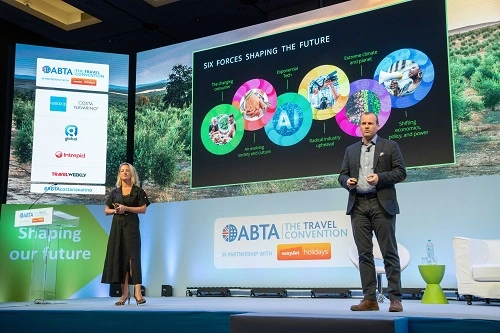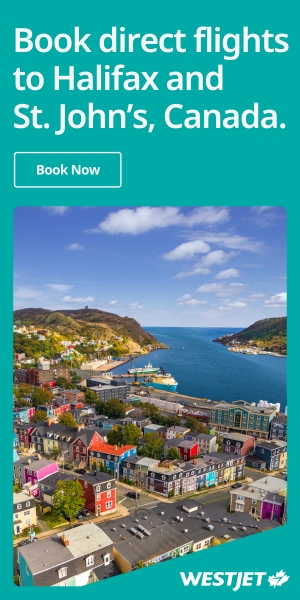Deloitte's lead partner, travel & aviation, Alistair Pritchard, and director of travel, hospitality & leisure advisory, Danielle Rawson, spotlighted six influencers and shifts in consumer behaviour – and the opportunities and challenges that travel will have to rise to in order to stay ahead
The changing traveller
Danielle believes that "the biggest change in our future will come from people."
That adds up, with the UN predicting a population of over 10 billion by the end of this century. Questions around how an aging population will fund their retirement, and the impact that might have on disposable income, remain.
Equally seismic changes are being reported among the youngest demographics, with Gen Z four times more likely to identify as LGBTQ+ than baby boomers.
"The implications on this are around where and when people want to travel, on their social values and how they are treated," Danielle continued.
"We are seeing three key trends emerge: health and wellness, with a more intentional response to spending on health and wellness in travel. Multi-generational holidays are emerging at a similar rate, with recent easyJet Holidays data suggesting that 57% of travellers want to spend more time with their elders, yet 51% have never been on holiday with them."
The tech-savviness of the youngest travellers rounded out the emerging travel trends trio. Millennials are currently the largest proportion of the Earth's population: 97% of them share their experiences on social media and 47% have planned an entire trip around inspiration from social media.
Radical digital upheaval
Alistair suggested that "there are so many things that we could talk about" with regards to industry upheaval. One such topic was the current spend of around 11% of discretionary income on digital goods and services, equivalent to that spent on fashion. That digital spend equating to digital services in travel or entirely virtual travel experiences is in its infancy, but is sure to ruffle some more traditional feathers in the industry moving forward.
Shifting society
Alistair noted the drop in marriages by 50% and increase in average age of first-time parents over the past half-century or so, suggesting that, "Young people are delaying life events."
That extends to home ownership; a third of Millennials will never even own a home in their lifetime.
The role of purpose, with both employees and consumers growing more cautious with where and what they are spending and who they are working with, is growing. "We are likely to see a greater focus going forward on people placing value on how much they trust organisations."
Naturally, that represents an opportunity for the travel trade to cultivate trust and confidence as a way of future-proofing their operations and maintaining or growing their place in the market.
All in for AI
After Travel Bulletin heard from Expedia TAAP about AI's role in travel last month, Danielle and Deloitte were equally keen on highlighting the way it could change the game. AI is now doubling in power every three months, with Tripadvisor and Google both implementing AI-powered trip and route planners over recent months.
Wearables were highlighted as one area where travel agents could seamlessly integrate AI; Danielle imagined a world where travel agents could record and reflect on enquiries and seamlessly design itineraries in very quick succession.
Cataclysmic climate changes
Consumers are already responding to climate change, with cool-tourism and slow travel having a rising role in traveller priority.
Danielle elaborated, "Whilst the tourism industry reached pre-pandemic levels again in 2024, and that is great news for businesses in the sector, it's not such good news for the ecosystems and the environment. How are businesses in this industry thinking about their supply chain and the impact that it has?"
Those questions remain for industry leaders and businesses in the sector, but it seems consumers are well on their way to making their minds up. A Deloitte study suggested that those who have experienced a climate event, such as record temperatures, are more likely to take action the next time they are considering travel.
"Changing behaviour doesn't mean not going on holiday, it just means spending or behaving in a different way."
Shifting economics, policy and power
The role of politics in travel cannot be understated. ABTA itself recently had to reschedule its annual Travel Matters conference due to the early election in the UK.
International travel laws influence where people live, travel and work, travel and hospitality is among the five most attractive sectors to hackers, and emerging economies can quickly come to dominate the international travel landscape. All those, Alistair noted, have basis in global political tensions and economic force.
"Geopolitics is particularly important to travel, because governments are the people that will be setting the agendas for the next step, whether that's about the movement of people, investment, climate, agenda, regulation or the freedom of movement."
So what?
Danielle was quick to acknowledge that these factors "might be a lot to take in... [but] none of these trends exist in isolation. They are all converging or colliding.
"One of the most important things that we have developed from this research is that companies in this industry have agency. You have choice. You can choice where to focus, where to invest, and you can shape the future of this industry."
Concluding, Alistair said, "The best way to predict the future is for you to create it."

Image Credit: ABTA
ABTA's Travel Convention 2024 is taking place from October 7th to 9th, 2024.








